That Tears Shall Drown the Wind

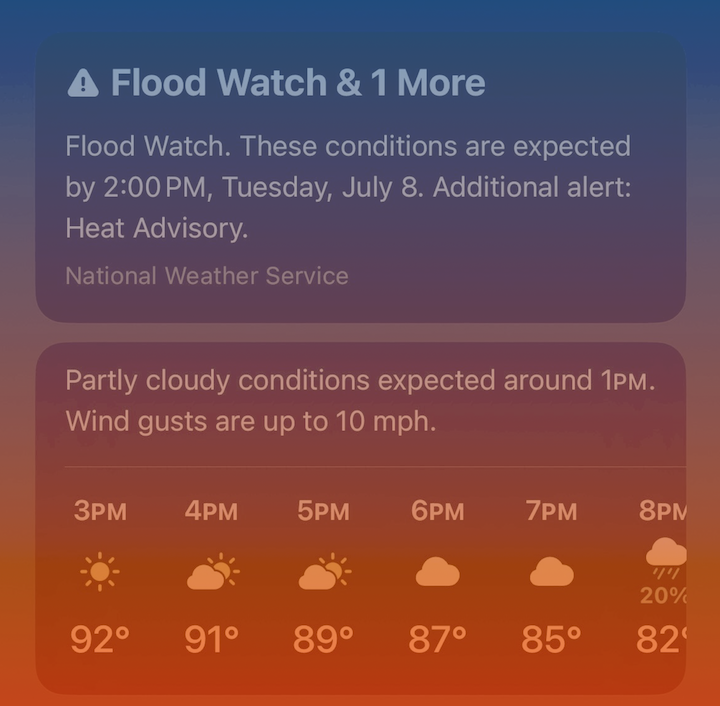
And pity, like a naked new-born babe,
Striding the blast, or heaven's cherubim, horsed
Upon the sightless couriers of the air,
Shall blow the horrid deed in every eye,
That tears shall drown the wind.— Macbeth, Act 1, Scene 7
Yesterday I woke up to a heat advisory and a flash flood warning. I duly got a touch of heatstroke, spent the rest of the day in a restive agony with heart palpitations, barely able to form words and certainly not in order. When the savage rains came I was in a black sleep and knew nothing at all.
I woke up in full recall that this is the real thing, here on our doorsteps, all of it: the flush-with-funds stormtroopers, and the real storms, stoked by greed and ignorance and indifference, in the sky (my own instinct having been to look away helpless for a very long time.) It feels like a precipice breaking and the long fall into the turbid waters. And my city, my beloved city, under siege by tempestuous words from the cruel hollow man with the whip hand, and the tempest itself, and the wet heat of an old barrow grave smashed open, to let its haints loose on the world.
Well, I did say I had a bit of heatstroke. It fevers the imagination. It made me think of the curses in Deuteronomy.
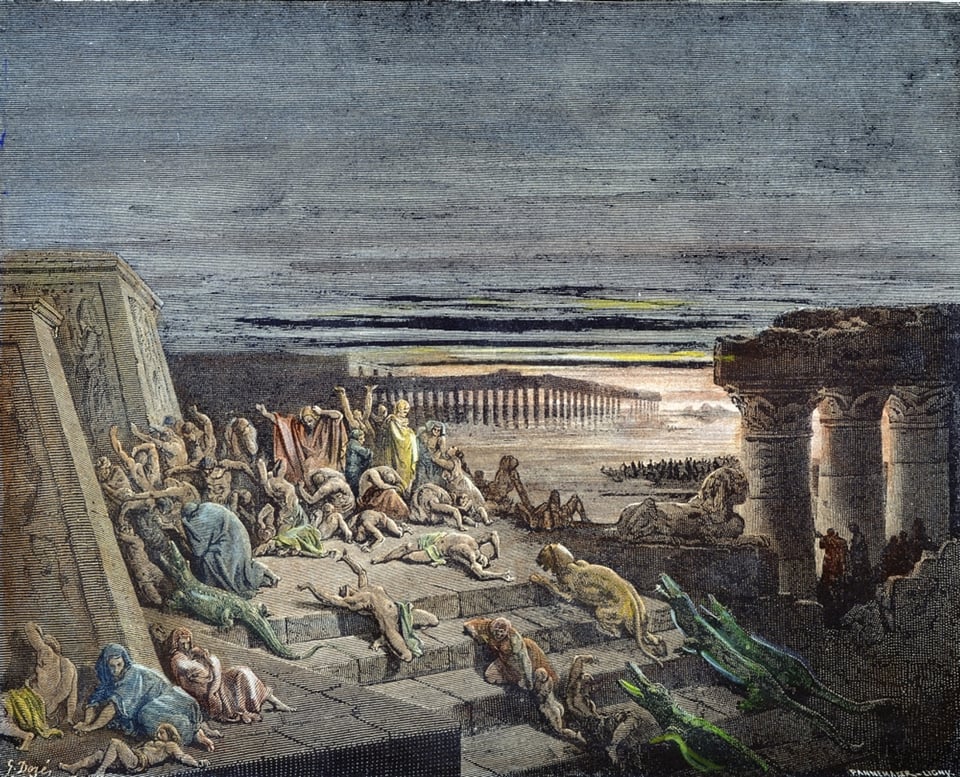
These were, somewhat appallingly, in the Torah portion for my bat-mitzvah, which I duly learned to chant in Hebrew. I recited these curses according to the sibilant semi-musical notes of the trop, the cryptic notations that tell you how to make your voice rise and fall. There are blessings as well as curses in Deuteronomy, and the blessings are far less in number. I learned sixty-seven verses of curses. They are the rewards of faithlessness, and cruelty, and indifference to the suffering of others, the turning-away from, as Genesis puts it, your brother’s blood crying out from the earth.
Whether you or I deserve it—whether any of us deserve it except the ones actively urging it on, and loosing more blood to cry out from the soaked earth—well, I suppose that’s a matter of question. But the God I rather determinedly don’t believe in certainly has a taste for collective punishment. Perhaps there is a waterline of cruelty and indifference beyond which the curses become displaced, loosed. Perhaps we’ve reached it now. Cruelty and indifference, ignorance and savagery—these are sins that are intertwined, if fundamentally different. But I rather feel we’ve reached the place where one can’t pluck one’s innocence out and hold it up for mercy. It’s here, the punishment. For all of us.
The Lord will strike you with wasting disease, with fever and inflammation, with scorching heat and drought, with blight and mildew, which will plague you until you perish. The sky over your head will be bronze, the ground beneath you iron. The Lord will turn the rain of your country into dust and powder; it will come down from the skies until you are destroyed.
The curse comes when you go in and when you go out. It comes in flood and drought. It comes for children and elders and everyone in between.
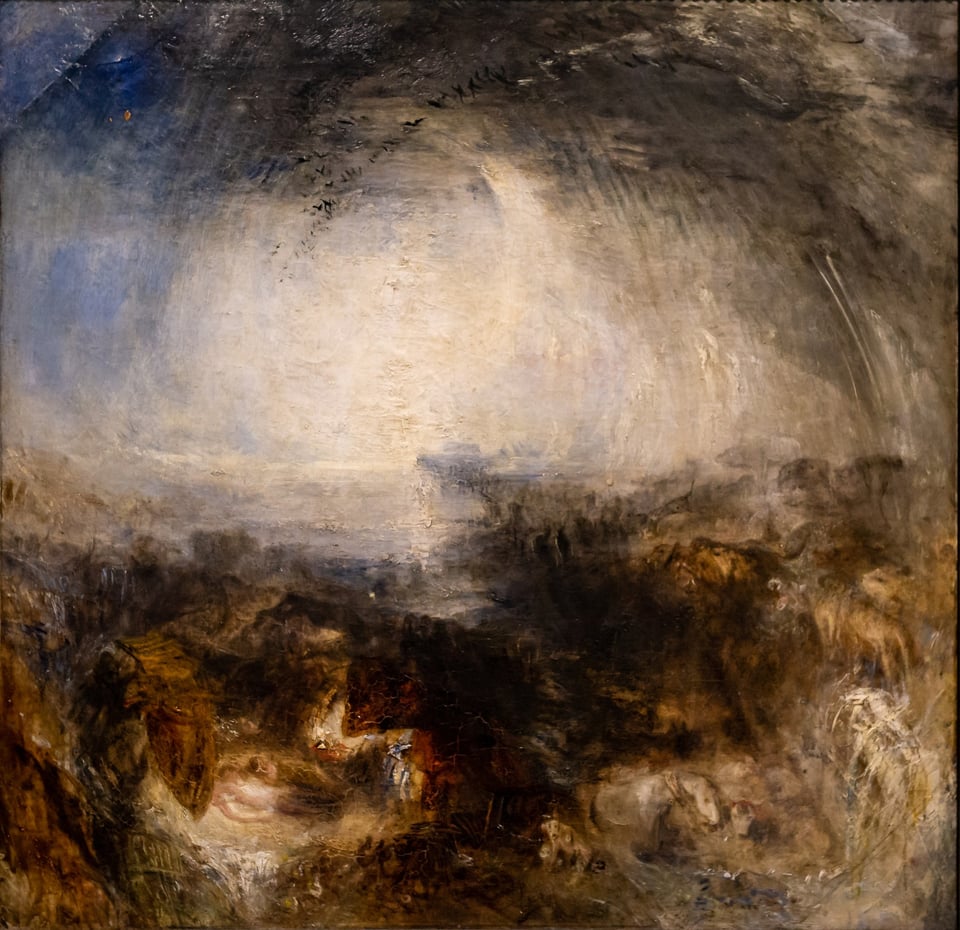
The reason I don’t believe in that God is because the way to avert the curse is obedience, unquestioning, to all His commands, and I haven’t done that because unquestioning obedience has never been my metier. But some sins are worse than others, and few are mortal, but cruelty and indifference in all their forms are chief among those.
The Lord will afflict you with madness, blindness and confusion of mind. At midday you will grope about like a blind person in the dark. You will be unsuccessful in everything you do; day after day you will be oppressed and robbed, with no one to rescue you… The Lord will drive you and the king you set over you to a nation unknown to you or your ancestors. You will become a thing of horror, a byword and an object of ridicule among all the peoples where the Lord will drive you.
The Sword and the Sandwich is a newsletter about deadly serious extremism and serious sandwiches. Please consider supporting this work with
a paid subscription.
These curses were my birthright. My portion. I know them well. It is even fair, perhaps, to say that though I don’t believe in God, I believe in curses. Even so, I reject their price: joyful obedience. I reject their inevitability, even as they come to pass. I say no to the curses of the Mount of Ebal, and no to the blessings of the Mount of Gerizim, too. A shout in the darkness of noon. A cool and implacable no in a sky turned to bronze by the wasting heat; a dry whisper of no in the rain, the rain, the rain and the wind that blows the horrid deed in every eye, the tears that drown that wind. I don’t deny that I am afraid.
In the morning thou shalt say: “Would it were even!” and at even thou shalt say: “Would it were morning!” for the fear of thy heart which thou shalt fear, and for the sight of thine eyes which thou shalt see.
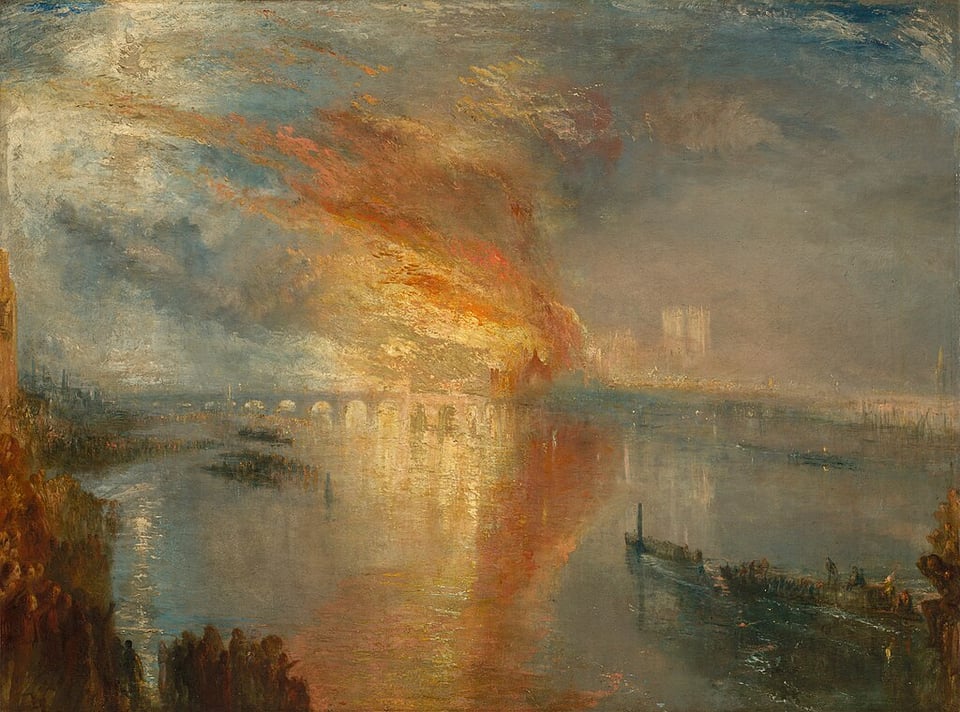
But fear and all, I say no. To cruelty and indifference both, and the curses they draw. I say no to my birthright. I say, we can turn the tide if we choose. Before the curses come to their full pass, before we’re driven and helpless, before all the olives drop from the trees; before the fruits of our toil are driven from our hands.
The thing about curses is they can be undone. The thing about darkness at noon is it can be lifted. Murder and rapine averted. I believe they can. I don’t clutch at blessings I don’t deserve, or we don’t deserve. I don’t want a deliverance from elsewhere, a deus from any machine at all.
I believe we can and must lift this curse ourselves. And when it comes to my city I cast down my indifference, my willing ignorance, which is my overweening sin; I cast aside passivity. I will stand, in the quaking anxious terror that’s my birthright too, and the stubbornness that is its twin. We have stood blind long enough at noon. It is on us now, when the breath of the curse is everywhere, the litany of curses our king has unleashed. It is time to rebel. To disperse the tears that drown the wind by averting the horrid deed.
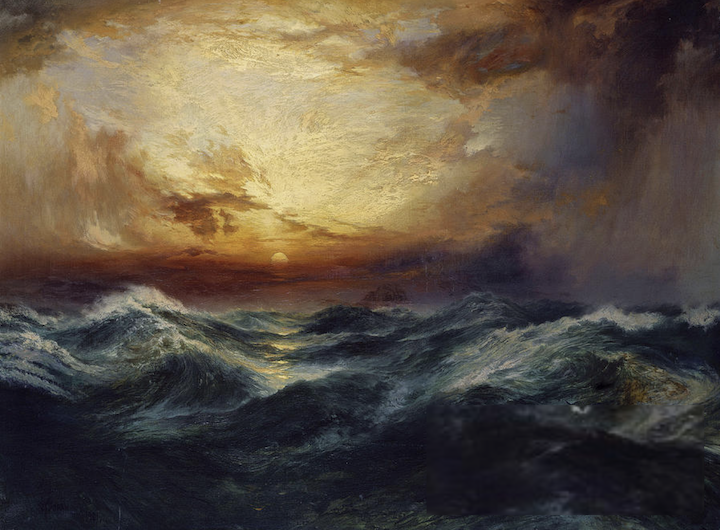
How to do it I don’t know. I endeavor to find out. With my heart hammering in the sun so bright it makes you blind. With the bog of the flood at my feet. I’ll stand for my city, its pavements scorched, its precious and myriad humanity; each one for each one. I will damn damnation, and call for mercy, not for me, not for my own sullen claim at innocence, but for all of us. Because there is so much to reclaim, from the babes in arms to the prisoners of injustice: to take back from barbarism, from joyous sadism, and from those who would consign them to their fates, and hide in selfishness. I take the parts of my birthright I choose—the stiff-necked resistance, the perpetual fearful wariness, the knowledge of the curses—and reject the rest, obedience and passivity, nation and border. I will stand for my city and the people in it and the fields around it.
Blessed shalt thou be in the city, and blessed shalt thou be in the field. Blessed shall be thy basket and thy kneading-trough. Blessed shalt thou be when thou comest in, and blessed shalt thou be when thou goest out.
Only if we fight for that blessing. Innate in each of us, not granted from above. The final plunge that makes all the curses tighten true is the continued sin of indifference, the shrinking from the fight, the urge to disclaim it. And I say no to that. I say no to the darkness at noon created by turning our heads away. If I am damned in my refusal, I hope it is not mine alone. There are tears in this wind, in this rain, in this city. I can taste them. And I refuse to drown. My birthright is disobedience. I claim it now.

-
No words but YES! 🎺
Add a comment: